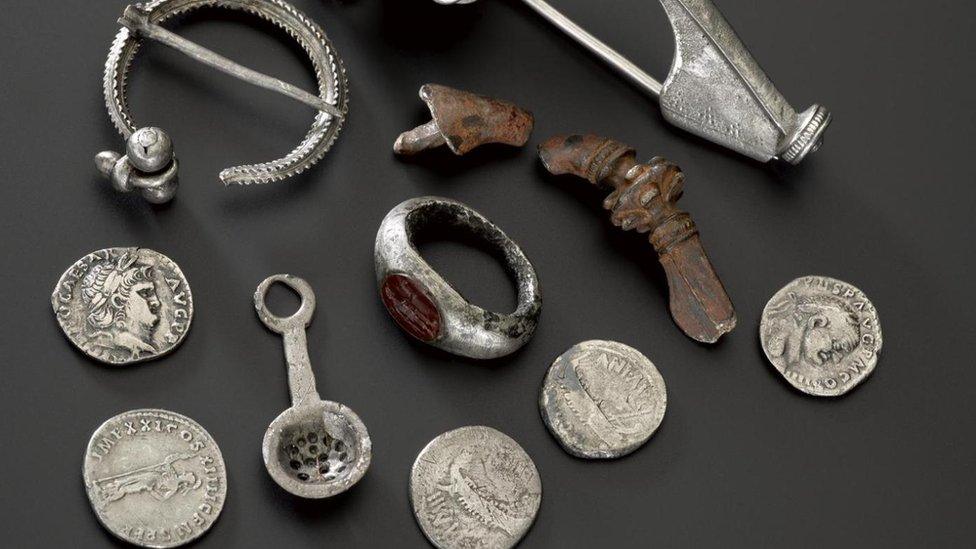Roman-era hacksilver treasure hoard found in Shropshire
- Published
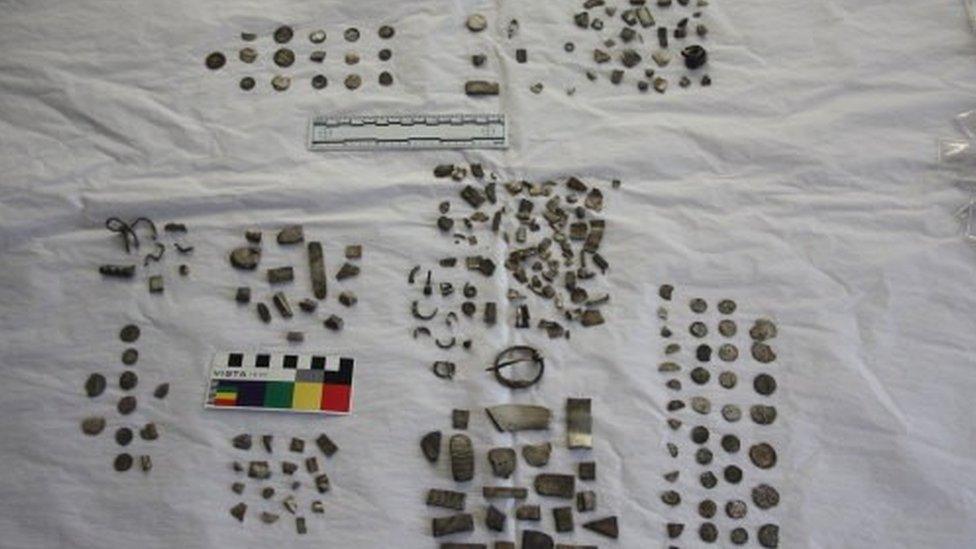
The haul is only the sixth hoard of Roman hacksilver found in Britain
Treasure hunters who unearthed a rare Roman-era hoard described how they "came up with handfuls of silver" as they dug into the ground.
Three metal detectorists found the haul in a field in Wem, Shropshire, in 2018.
It included coins and broken plates used as bullion - a form of currency called hacksilver - which dated back to the 4th and 5th Centuries.
It is only the sixth hoard of its kind to be found in Britain and was declared treasure at an inquest.
Hacksilver includes items of silver, vessels or tableware broken into pieces which was used as currency after the Romans left Britain and the monetary system collapsed.
'It was incredible'
Shropshire coroner John Ellery was told the haul - buried in the Dark Ages in about 460 to 500AD - constituted a single hoard of treasure and the items should be known as the Wem Hoard.
The inquest heard how Steve King, Steve Lord and Andy Bijsterbosch first discovered half a dozen coins on the surface before delving deeper.
"We dug down a couple of feet and we ended up sort of putting my hand in - and literally coming up with handfuls of silver, including the brooch, including some rings... bits of cut silver," said Mr King, from Ashton, near Chester.
"It was just incredible."
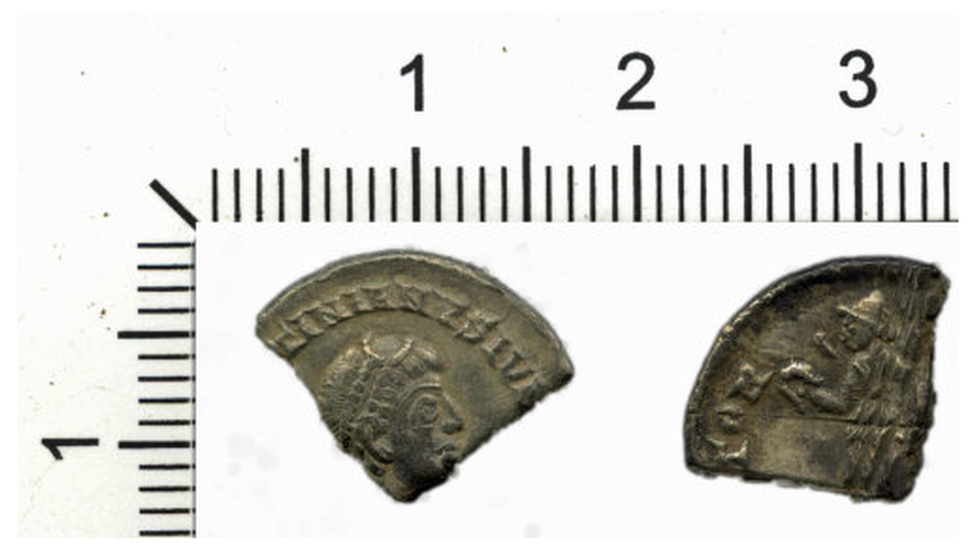
The haul will now be valued and hopefully go on display in Shropshire
Peter Reavill, finds liaison officer for Shropshire and Herefordshire with the British Museum's Portable Antiquities Scheme, told the inquest it was hoped the items could be acquired for display after they had been valued.
He said other items found included vessels, brooches and buckles, but also Roman coins from "the very end of the Roman Empire".
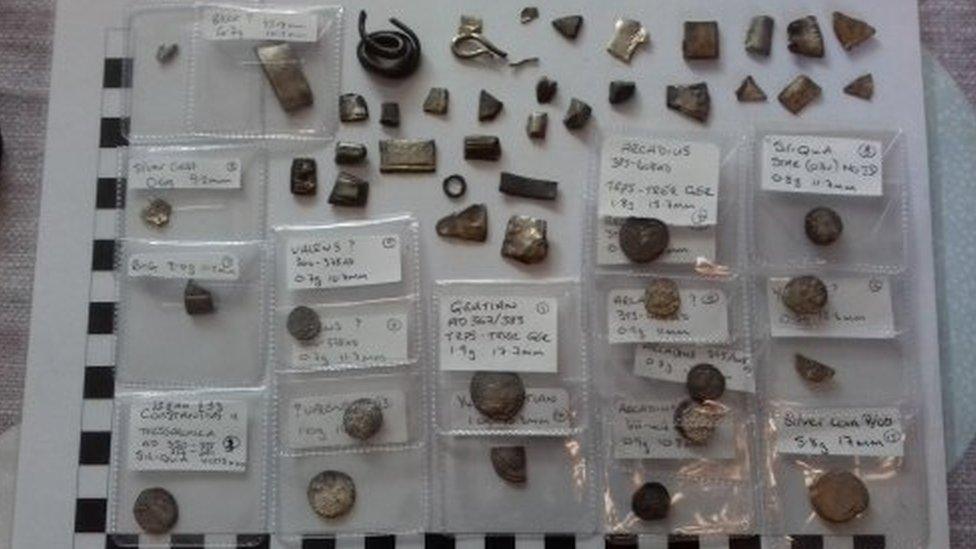
Shropshire coroner John Ellery was told the haul constituted a single hoard of treasure
You may also be interested in:
"We know at that time that the monetary system in Britain has completely collapsed and based on a sort of bullion - the weight of the silver in the coins and the objects," he said.
There are few objects in existence of that period of history in the West Midlands so "without these metal detectorists we wouldn't have known anything about that period in this part of Shropshire," he added.
- Published28 August 2019
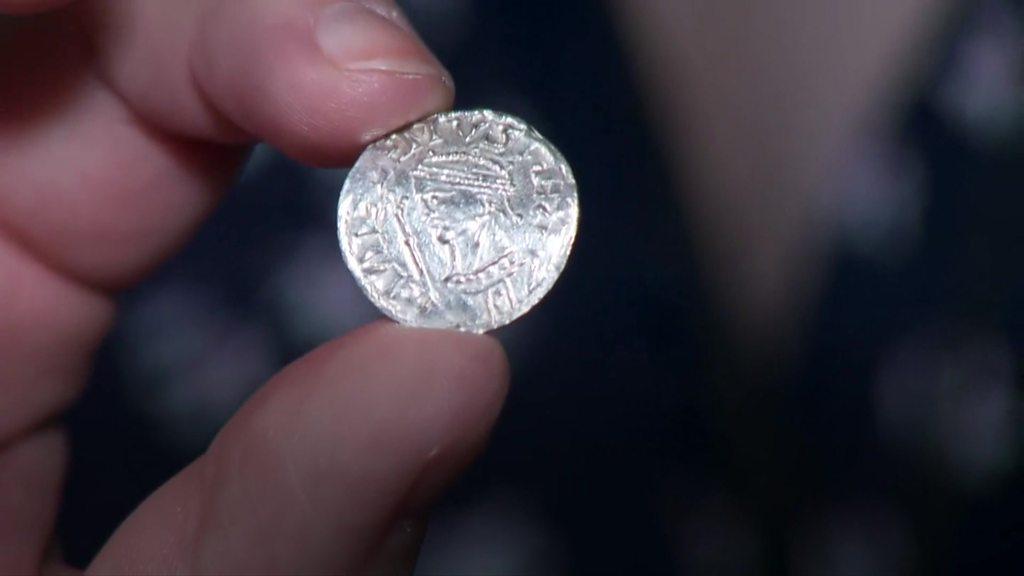
- Published12 October 2017
